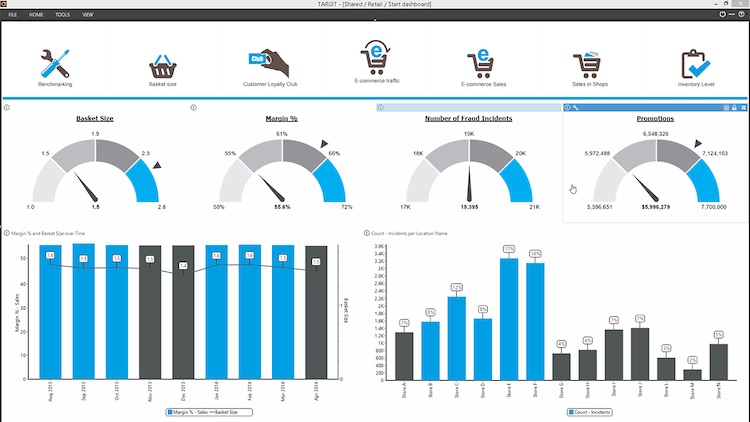By Søren Block Olsen, director of marketing at TARGIT Business Intelligence & Analytics
According to a recent Gartner survey, 80 percent of manufacturers only measure results. They measure past performance by looking at the results in the financial statements.
Even the most diligent Lean Manufacturing Six Sigma Theory of Constraint practitioners do not know what impacted these results, or what is best done to improve going forward.
Too often manufacturing firms, even top-tier operations managers, use company analyses or reports which neglect to ask why outcomes failed.
There is attention paid to all variables evenly and equally rather than discerning which area of an industrial business needs the most attention to improve profit.
A modern, data-driven business must look at the current state and move to a healthy and dynamic future state. It defines business intelligence.
Business Intelligence is high on the agendas of manufacturing and industrial executives. Gartner analyst Michael Smith reported that a survey of CEOs and Senior Business Executives in North America identified two top technology investment focus areas: Business Analytics (71%) and Enhanced Business Reporting (56%).
Different factors are driving industrial executives to make investments in Business Intelligence. Sadly, there is still a significant gap between the information they need and the information they can readily access and use effectively.
These data are lagging indicators, looking into the past without understanding the internal business processes and external environment requiring attention and focus.
Business Intelligence Data Must be Predictive
Predicting what will happen is half the challenge; prescribing corrective actions is the other half. In most cases, data is already being registered and logged through decentralized transactional systems such as an enterprise resource planning (ERP) solution or the customer relationship management (CRM), marketing, or warehousing solutions.
Information managed by functional areas is often siloed and not accessible for manufacturing executives to understand right away. These are not organized in a manner which allows for analysis across the diverse transactional solutions within the company. This automated and integrated business intelligence requires a dedicated setup that is built for analytics.
Differentiating the Most Valuable Data
Big data currently resides inside of companies and is not being used. Sadly, too often big data equates with information overload. Many industrial organizations focus on too many metrics without focusing on the most important. The big data tsunami has left operations, finance, sales and marketing attempting to decipher all that external data.
Most report they are not properly utilizing the information and according to Gartner, the confusion around big data is so apparent that companies delay spending on analytics and Business Intelligence until they figure out how to better handle data.
The Case for Business Intelligence
The desired future state must be determined. The way to successfully move forward, even with developing KPIs and identifying leading indicators, is to first determine the end goal.
That can be anything from increasing revenue to reducing costs. Access to Business Intelligence allows industry leaders to consider the variables in the internal and external environments which most impact reaching those objectives.
The internal processes must focus on vendor and inventory management.
External processes are often economic factors outside of the company that still have an impact (such as the needs of customers, competitor actions, tariffs, and changes to raw materials pricing).
Investing in Business Intelligence is quickly cost-justified because when the right information about what most impacts success and failure in business brings dividends quickly and abundantly.
Leading indicators are truly valuable for businesses of any size because they define critical issues direct where investment is most needed. Business Intelligence and analytics are most useful in capturing operational gains.
Automating critical business intelligence regularly allows industrial improvements to the bottom-line by an estimated 30 percent.

Author Profile: Søren Block Olsen, the Director of Marketing at TARGIT Business Intelligence & Analytics, works with data-rich marketing systems providing him with first-hand insight into customer and market behavior.
Olsen specializes in designing processes and systems to collect and turn data into useful information that supports business.
He thrives on being where IT meets business, surrounded by people who are curious about the world and embrace changes because the status quo is not good enough. He earned a Bachelors in Global Business Engineering and a Master of Science in International Technology Management from Aalborg University.

